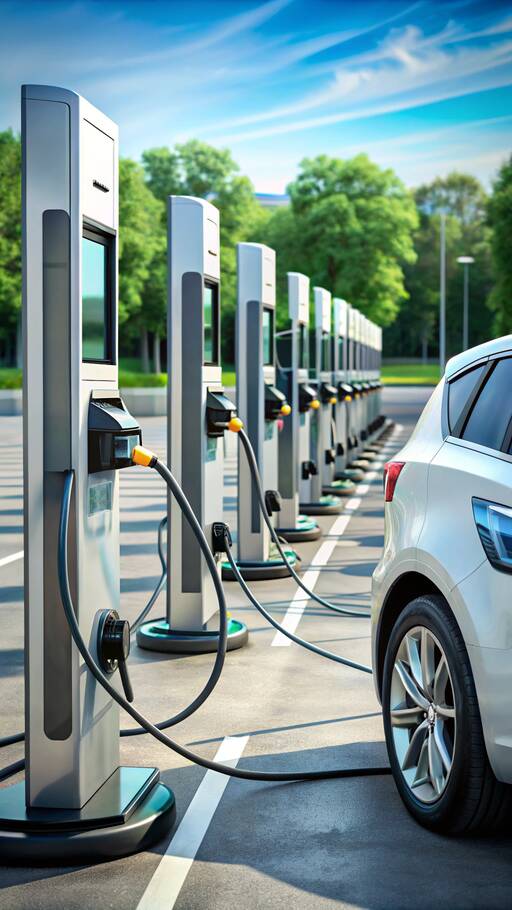
The UK motor industry is currently engaged in an important consultation regarding the government's pledge to end the sale of pure petrol and diesel vehicles by 2030. This proposal, originally set for 2035, has reverted to its initial 2030 target, a timeline already supported by many UK car manufacturers.
The consultation aims to enhance the Zero Emission Vehicle (ZEV) mandate, which dictates the required percentage of zero-emission vehicles carmakers must sell by 2030. By 2024, this figure is set at 22%, with manufacturers facing significant fines for non-compliance. They have the option to buy credits from others or borrow quotas from future years.
A key aspect of the consultation is determining the status of hybrid vehicles after 2030. Clarity is being sought on the future of self-charging, plug-in, or range-extender hybrids.
Industry leaders emphasize the need for government-backed incentives to accelerate electric vehicle (EV) adoption. Ford UK's Lisa Brankin highlights the urgency of these measures, while Mike Hawes of the Society of Motor Manufacturers and Traders underscores the financial strain on manufacturers due to discounting.
Transport Secretary Heidi Alexander advocates for the electric shift, noting the 72,000 public charging points available and the decreasing costs of EVs. With one in four cars sold in November being electric, the move towards cleaner transportation promises significant economic opportunities.
The Department for Transport has confirmed the 2030 ban on petrol and diesel cars as part of its green transport agenda. However, the future of hybrid vehicles remains uncertain.
Industry stakeholders like Mike Hawes point out that consumer demand will influence the pace of transition, while ongoing consultations with the automotive sector aim to ensure balanced progress.
The return to the 2030 ban was part of the Labour Party’s manifesto, despite its previous extension to 2035. The plan suggests that delaying the ban would increase costs for British families, as EVs are expected to become cheaper in the long run.
The UK is moving towards a future without new petrol and diesel cars by 2030, with key consultations underway to refine the Zero Emission Vehicle mandate and assess the role of hybrids. Industry figures emphasize the importance of government initiatives for EV uptake, while government officials highlight positive developments in infrastructure and market growth. The road ahead for the UK automotive industry hinges on strategic planning and consumer engagement.
 | I can't help but think this is just another example of empty promises. The government frequently changes its stance, and I doubt we’ll see the ban implemented effectively by 2030. |
 | I’m skeptical about the government’s ability to follow through. They keep making announcements without providing clear, actionable steps to support the transition. |
 | The ban on petrol and diesel cars seems ambitious, but without solid incentives and infrastructure, many consumers might resist the change. Let's hope the government has a clear plan. |